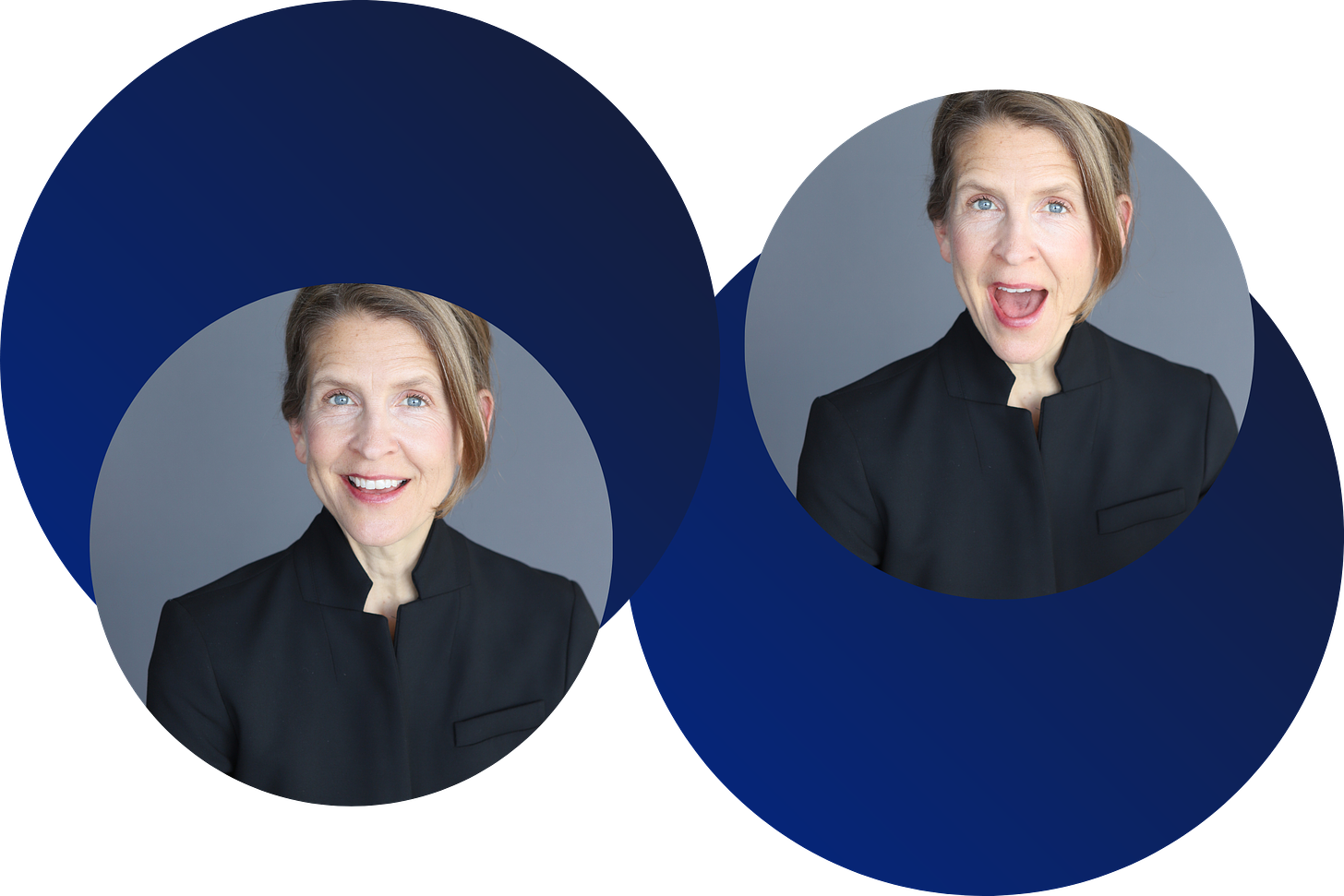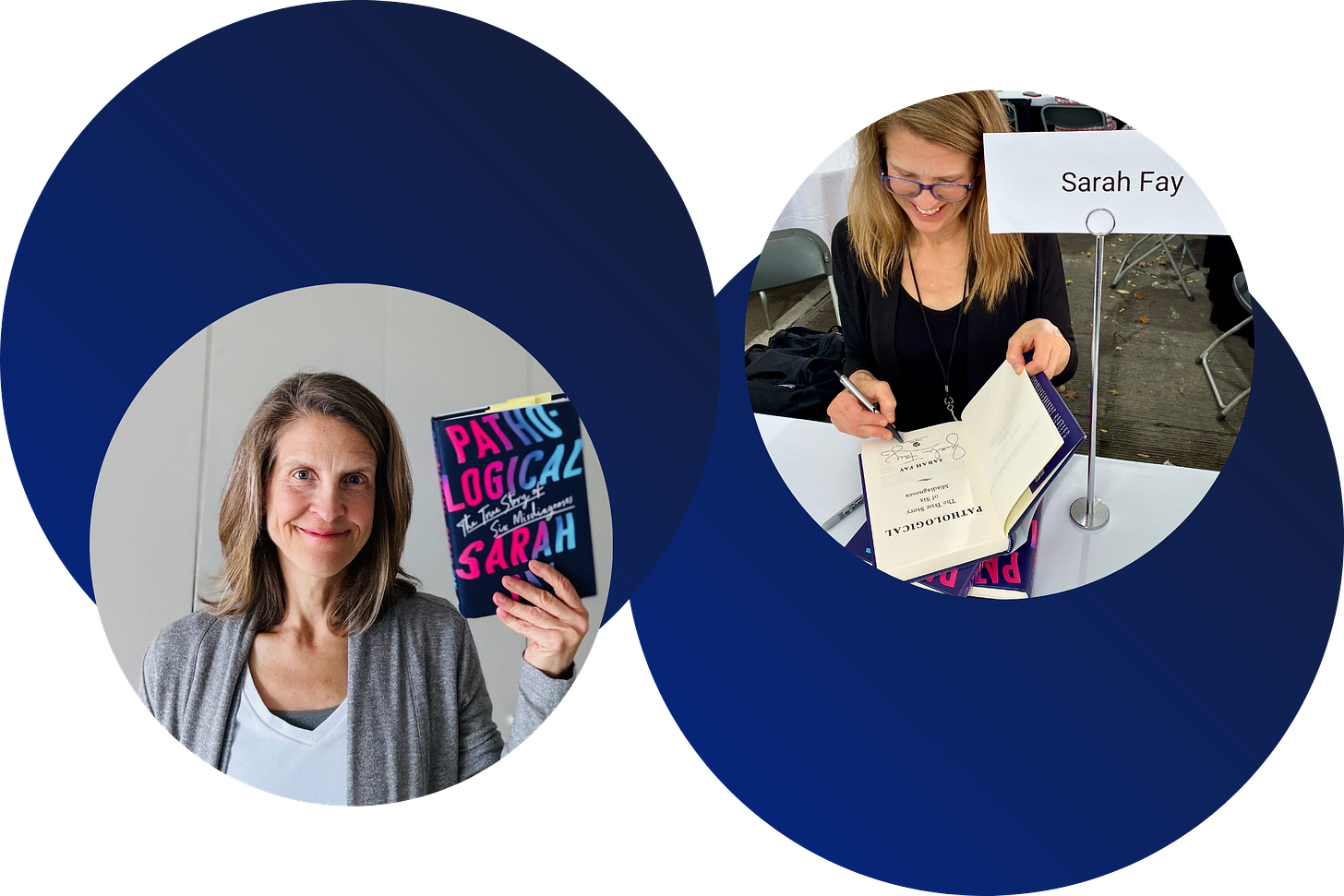Sarah Fay (MFA, MA, PhD) is an award-winning author, educator, activist, and entrepreneur. Her work focuses on mental health advocacy and questioning society’s happiness formula and how to create our own.
Her debut memoir Pathological: The True Story of Six Misdiagnoses (HarperCollins) was an Amazon bestseller, an Apple Best Books pick, and hailed by The New York Times as a “fiery manifesto of a memoir.” It was featured on NPR, Oprah Daily, Salon, Forbes, The Los Angeles Times, and more.
The highly anticipated sequel Cured is a bestselling Featured Publication on Substack.
As a writer, Sarah’s writing appears in many publications, including The New York Times, The Atlantic, Time, and The Paris Review, where she was an advisory editor. Her essays have received Notable Mention in Best American Essays and Pushcart Prize nominations. She’s the recipient of the Hopwood Award for Literature and fellowships from Yaddo and the MacDowell Colony, among others.
A certified mental health peer recovery specialist, Sarah is a sought-after keynote speaker. She’s been featured on NPR, Oprah Daily, Salon, Forbes, The Los Angeles Times, and more.
In the digital publishing world, Sarah serves as a Substack Growth Strategist and is the founder of Substack Writers at Work. She helps creators, writers, thought leaders, and entrepreneurs produce their best work, build loyal audiences, and maximize their income on the platform.
She’s on the creative writing faculty at Northwestern University and lives in Chicago with her two beloved cats, Sweets and Baby Theo. More than anything, she wants a t-shirt that says, Ask me about my cats.
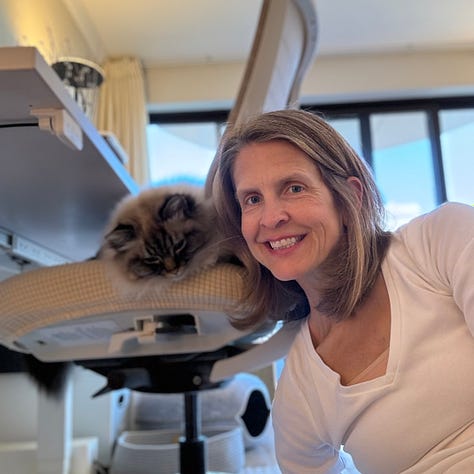

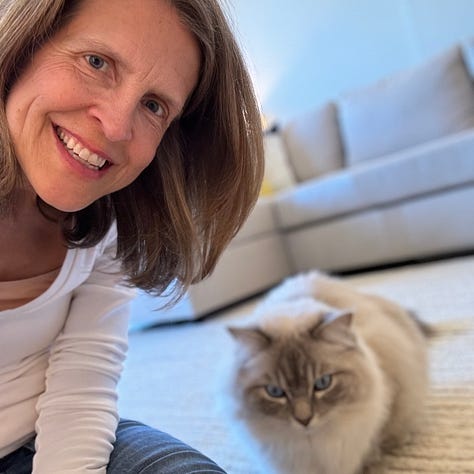
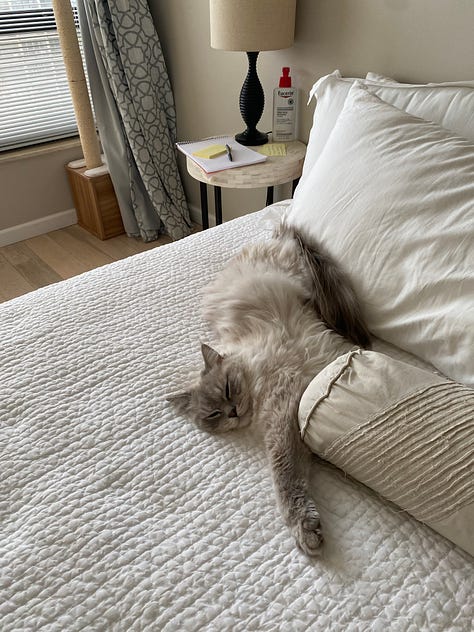


Contact:
Publicity, Sarah Schoof, HarperCollins Publishers | Sarah.Schoof@harpercollins.com
Literary agent, Kim Witherspoon, Inkwell Management | Kimberly@inkwellmanagement.com
Speaking agent, Washington Speaker’s Bureau | (833.972.8255)
Direct, mssarahfay1516 [at] gmail.com
What people are saying:
“Sarah Fay’s artful work is pleasingly unclassifiable—masterfully written, distinctively researched, and deeply humane. I’ll just call it genius.” —Anthony Swofford, International and New York Times bestselling author of Jarhead
“Sarah Fay is a deeply compelling person and a fantastic writer. We were wowed by her talent for bolstering personal stories with takeaways backed up with careful research.” —Apple Best Books Pick, Pathological
“Sarah Fay creates a work of art that entertains as much as it informs. The prose is so electric, incisive, witty, irreverent, devastating, sparkling! Fay has created a masterpiece that is a true original on every level.” —Porochista Khakpour, award-winning author of Sick
“Sarah Fay shows how our attempts to order the universe and our minds has caused at least as much harm as good.” —DT Max, staff writer at The New Yorker and author of The Family That Couldn’t Sleep
“Sarah Fay’s talent for empathetic, but un-sugarcoated language and her passion for patient-led recovery makes her posts compelling and thought-provoking.” —Neva Kares Talladen, The Other Worldly Dispatch
Join my Substack community!
This is more than a newsletter; it’s a magazine of my work, full access to my second memoir Cured, and a community of people asking the same question, What if we questioned society’s wellness formula and created our own?
The annual subscription of $30/year (about the price of a hardcover book) gives you
Exclusive access to Cured: The Memoir—The highly anticipated sequel to Pathological: The True Story of Six Misdiagnoses (HarperCollins), Cured combines memoir and investigative journalism to challenge mental illness narratives
The 🎧 audiobook narration on the Substack app or on Spotify—hear my powerful story in my own voice
My monthly columns and community threads where we consider what society says will make us happy and what really does
Start with a Question, where we question what we believe to be true about being human in today’s fast-paced world
Less of More and More—for those who want a little less in a culture of too much
The full archive of my work



